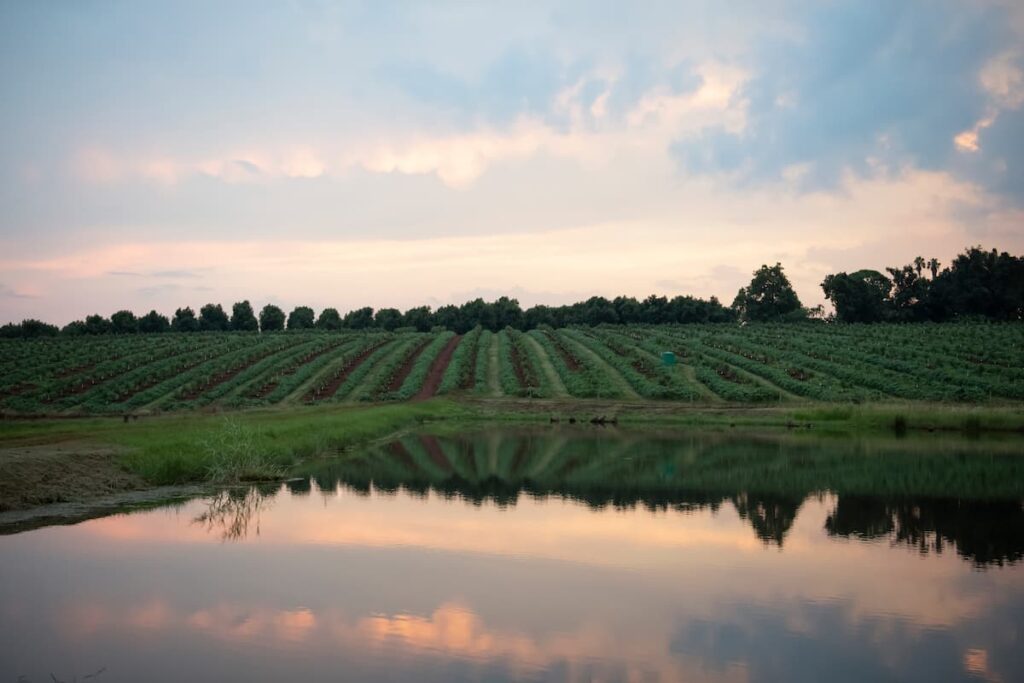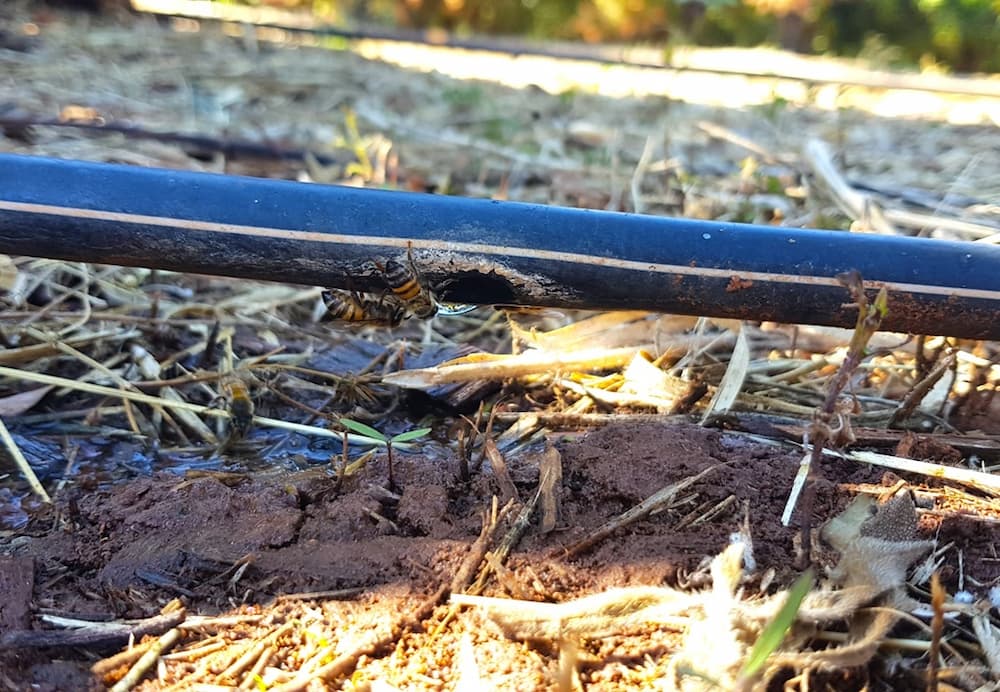Avocado Farming Uses Smart Technologies to Reduce Water Consumption

Photo: The World Avocado Organisation
Avocado farming is often unfairly singled out for its water usage, however, a lot of everyday household staples use far more water in comparison to avocados such as beef (13 times higher), chocolate (14 times higher) and coffee (15 times higher) (sources 1 and 2). With the world becoming increasingly more conscious about the amount of water we consume, the avocado industry is stepping up with innovative technologies that not only sustain avocado cultivation, but also further reduce water consumption. Over the last decade, industry wide growers across the World Avocado Organisation have lowered their use of water considerably through more sustainable watering methods such as smart drop irrigation systems equipped with sensors, soil moisture monitoring systems, rainwater harvesting and fertigation.
Precision Irrigation Systems
Many avocado farmers are embracing cutting-edge watering techniques that deliver water directly to the roots of trees. Drip irrigation reduces water usage by up to 50% (Sources 3 and 4), with water being delivered directly into the soil in the right amounts and at the right time. This approach ensures that each plant gets exactly what it needs
without wasting any water, minimising wastage caused by evaporation. Here, soil moisture sensors play a pivotal role in ensuring that water is applied only when and where it is needed, preventing over-watering.
Soil Moisture Monitoring
In avocado farming, real-time soil moisture monitoring systems have become indispensable tools to enable growers to revolutionise the way they manage their crops, by providing precise and up-to-the-minute data on soil moisture levels. This data-driven approach enables farmers to make informed decisions about irrigation schedules, offering them a deeper understanding of the soil's moisture content.

Drip irrigation system. Photo: The World Avocado Organisation
Rainwater Harvesting
Avocado farms are also exploring rainwater harvesting as a sustainable means of supplementing their water needs. This involves collecting rainwater during wet periods and storing it for dry spells, minimising reliance on external water sources. Rainwater harvesting systems comprise a network of collection mechanisms, filtration processes, and storage facilities. The collected rainwater is then filtered to remove sand and foreign particles. Furthermore, rainwater harvesting gives farmers a degree of self-sufficiency, enabling them to maintain consistent crop watering, even when facing water scarcity challenges.
Fertigation Systems
Fertigation involves combining irrigation with the application of fertilisers. This can be achieved through various watering methods, ensuring that nutrients are delivered directly to the roots of trees. By precisely tailoring the nutrient mix to the needs of each avocado tree, fertigation eliminates the guesswork associated with traditional methods. This not only increases the efficiency of nutrient utilisation but also contributes to environmental sustainability by reducing the potential for excess fertiliser.
In conclusion, the incorporation of precision irrigation systems, real-time soil moisture monitoring, rainwater harvesting, and fertigation systems into avocado farming practices marks a significant step toward precision agriculture and sustainable resource management. According to the World Avocado Organisation, “the adoption of innovative irrigation technologies has increased efficiency and already drastically brought down water usage on a majority of our member farms over the last 7 years”.
Sources
- Mekonnen MM, Hoekstra AY. The green, blue and grey water footprint of crops and derived crop products. Hydrol Earth Syst Sci [Internet]. 2011;15(5):1577–600. Available from: https://waterfootprint.org/media/downloads/Mekonnen-Hoekstra-2011-WaterFootprintCrops.pdf
- Mekonnen MM, Hoekstra AY. Value of Water [Internet]. Waterfootprint.org. 2010 [cited 2022 Sep 22]. Available from: https://www.waterfootprint.org/media/downloads/Report-48-WaterFootprint-AnimalProducts-Vol1.pdf
- Hatfield J. Water conservation at the heart of westfalia’s sustainability strategy [Internet]. Westfalia Fruit. 2022 [cited 2022 Sep 22]. Available from: https://www.westfaliafruit.com/water-conservation-at-the-heart-of-westfalias-sustainability-strategy/
- Erazo-Mesa E, Echeverri-Sánchez A, Ramírez-Gil JG. Advances in Hass avocado irrigation scheduling under digital agriculture approach. Rev colomb cienc hortíc [Internet]. 2022 [cited 2022 Sep 22];16(1):e13456–e13456. Available from: https://revistas.uptc.edu.co/index.php/ciencias_horticolas/article/view/13456